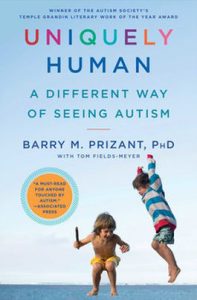How I Learned to Communicate my Inner Life with Aspergers
Aspergers101 blogger, Alix Generous, is an amazing young woman who happens to be diagnosed with Asperger’s Syndrome. In June of 2015, Alix was asked to speak at TEDWomen. Below is a recorded copy of Alix discussing “How I Learned to Communicate my Inner Life with Aspergers”. She offers her wit, personal stories, and vision for tools to help more people communicate their big ideas.
Read some of Alix’s blogs on Aspergers101:
23 Truths I learned From Social Skills Training
Feeling With Heightened Senses
A graduate of Abilene Christian University, Jennifer had a long career in TV Broadcasting. Upon learning her oldest son Sam had a form of Autism called Asperger’s Syndrome, she left her career and became a full-time mother to both of her sons. Jennifer elicited the participation of her family and together they produced several independent programs including a children’s animated series titled Ameriquest Kids, as well as a documentary and book titled, Coping to Excelling: Solutions for School-age Children Diagnosed with High-Functioning Autism or Aspergers Syndrome. She formed the nonprofit Asperger101 to provide on-going free resources related to ASD at Aspergers101.com and has implemented the Texas Driving with Disability Program and continues to grow the statewide initiative today. She and her husband have recently retired to their property in the Texas Hill Country.
















